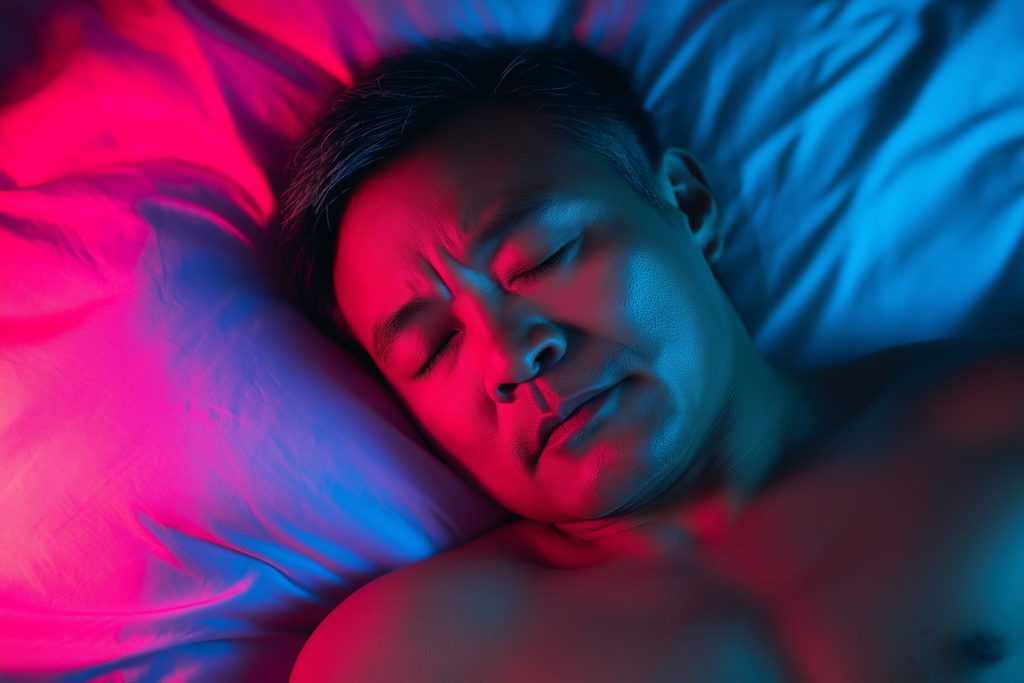
How Sleep Impacts Sexual Health and Libido
Sleep affects many areas of your well-being, including your sexual health. Learn about sleep’s influence over your libido and sexual performance.

Intimacy of all types is important in a relationship, yet sleep can hinder your sexual health and libido. With it playing a role in how your sex organs function and whether or not you are even in the correct headspace for sex, a poor performance in one bedroom activity (sleep) may cause problems in the other (sex).
The connection between sleep deprivation and poor sexual health is multi-factorial, opening many doors that need addressing in order to improve your sex life, although many converge into one simple goal: get more sleep.
What Happens to Your Body If You Don’t Get Enough Sleep?
You know that after a night of little sleep, you’ll feel tired, but are you aware of all the other symptoms that can crop up due to impaired body processes?
When you don’t get enough sleep, you may experience:
- Difficulty concentrating
- Memory problems
- Anxiety
- Depression
- Irritability
- Low motivation
- Poor balance and coordination
Beyond these symptoms, though, sleep deprivation can affect other areas of your well-being. For example, continued sleep deprivation can raise your risk of high blood pressure, obesity, and diabetes, which can contribute to cardiovascular concerns such as stroke and heart disease.
Your immune system, as well, can take a hit when you don’t get enough sleep. One study even found that not getting enough sleep can make you more likely to become infected with the common cold simply because your defenses are not as strong as they should be. Sleep loss may also cause inflammatory cytokines to generate, which can contribute to the development of cardiovascular and metabolic disorders.
Knowing the wide-reaching influence of our sleep, it’s no surprise that it can also influence our sexual health.
How Sleep Impacts Sexual Health and Libido
Sleep can impact your intimate relations in two primary ways: sleep deprivation can affect the functionality of your sex organs, and not getting enough sleep can squelch your libido, removing any desire to become intimate with your partner.
Both of these avenues can influence your relationship with your partner and hinder your self-esteem.
Lack Of Sleep Increases Erectile Dysfunction Risk
Are you having trouble getting, and keeping, it up? A lack of sleep may be to blame.
Erectile dysfunction (ED) is a condition where a male cannot get or keep an erection in order to have sex. It can be frustrating as the desire to have sex is often there, but the body is not cooperating.
ED is a common condition that affects around one-third of all men. It has many causes, including poor blood flow, impaired nerve function, or even psychological causes.
Knowing this, there are multiple ways in which sleep can contribute to ED. Since prolonged sleep deprivation can lead to cardiovascular concerns over time, it may impede the ability of blood to flow to the penis, keeping it from getting fully hard. Sleep loss can also cause a worsening mood, which may keep the mind from fully getting “into the mood.”
The connection between sleep and ED has been observed through research as well, with one study finding that sleep disorders may increase the risk of ED, with 63% of the men in the study with obstructive sleep apnea also having ED. Research has also connected obstructive sleep apnea with sexual dysfunction in women, but treatment of sleep apnea using a CPAP machine was shown to reduce sexual dysfunction.
Sleep Deprivation Lowers Libido
Even if your sex organs are in tip-top shape, the desire to have sex needs to be there, and sleep may hinder you in this regard.
One study found that each hour of sleep that a woman gets increases her libido by 14%, meaning the less sleep you get, the less you’ll feel like having sex. If this continues, your relationship can take a hit from the low libido, which can then cause further issues.
Another study found that a lack of sleep can decrease a man’s testosterone levels, which may reduce libido as well as cause further difficulty sleeping.
Sleep Deprivation May Cause Infertility
Sexual health is defined not only by your ability to have sex but also by how successful this coupling is—infertility is the result of poor sexual health, and sleep deprivation may be one of its culprits.
Research has shown that men who do not get enough sleep not only produce an insufficient amount of sperm, but the sperm they do produce are abnormally shaped. When combined with low libido, sleep deprivation may affect how capable a man is of conceiving a child.
Women, as well, can experience fertility struggles due to sleep deprivation. Specifically, disruptions to the circadian rhythm in women have been linked with irregular menstrual cycles, which can result in fertility challenges due to problems with ovulation, which is the point in a period when the ovaries release an egg. Without this release, there is nothing to be fertilized by sperm, and pregnancy cannot occur.
Sleep Deprivation Disrupts Your Circadian Rhythm
Your circadian rhythm is the 24-hour cycle your body experiences, and its primary role is to regulate your sleep-wake cycles. However, disruptions to the circadian rhythm, which can result from working non-standard hours and shift work, can disrupt your circadian rhythm.
In a study of men who work non-standard hours, those with poorer sleep quality had an increased risk for hypogonadal symptoms and sexual dysfunction.
Sleep Deprivation Keeps You from Getting “In the Mood”
Sex is as much a physical act as an emotional one, and if your head isn’t in the right space, sex isn’t likely to occur or be enjoyable.
Not getting enough sleep can affect your mental health by lowering your mood and increasing your irritability. Research has also shown that a lack of sleep can make fights with a partner more likely, which creates an environment incompatible with a satisfying sex life.
Improve Your Sleep to Boost Your Sex Life
If you’re looking to improve your sexual health and libido, try prioritizing your sleep through sleep hygiene, such as:
- Using a mattress that is supportive for sleep (and optimal for sex!)
- Sleeping in a cool, dark, and quiet room.
- Keeping a regular sleep schedule—this helps to regulate your circadian rhythm.
- Avoiding electronics at least an hour before bed.
- Incorporating relaxing activities into your nighttime routine to help prepare for bed.
If improving your sleep does not solve more intimate issues in the bedroom, it may be time to see a doctor—an underlying medical condition may be behind your struggles, and they can help you find a diagnosis and begin treatment.
For more emotional struggles in sex, therapy as a couple may be a good idea to help work through any struggles and receive advice from a professional.
Ultimately, getting enough sleep not only improves your health and wellness, but it can help you keep up your sexual health and libido, building a rewarding sex life and relationship with your partner that will also help you sleep easier.

Written by
Jessica G
Medical writer freelancer who has written hundreds of articles on varying topics. Masters of Engineering degree in Biomedical Engineering.
Download Pillow
Get help
Press & News
Legal
Connect
X (Twitter)
Company
Copyright © Neybox Digital Ltd.



